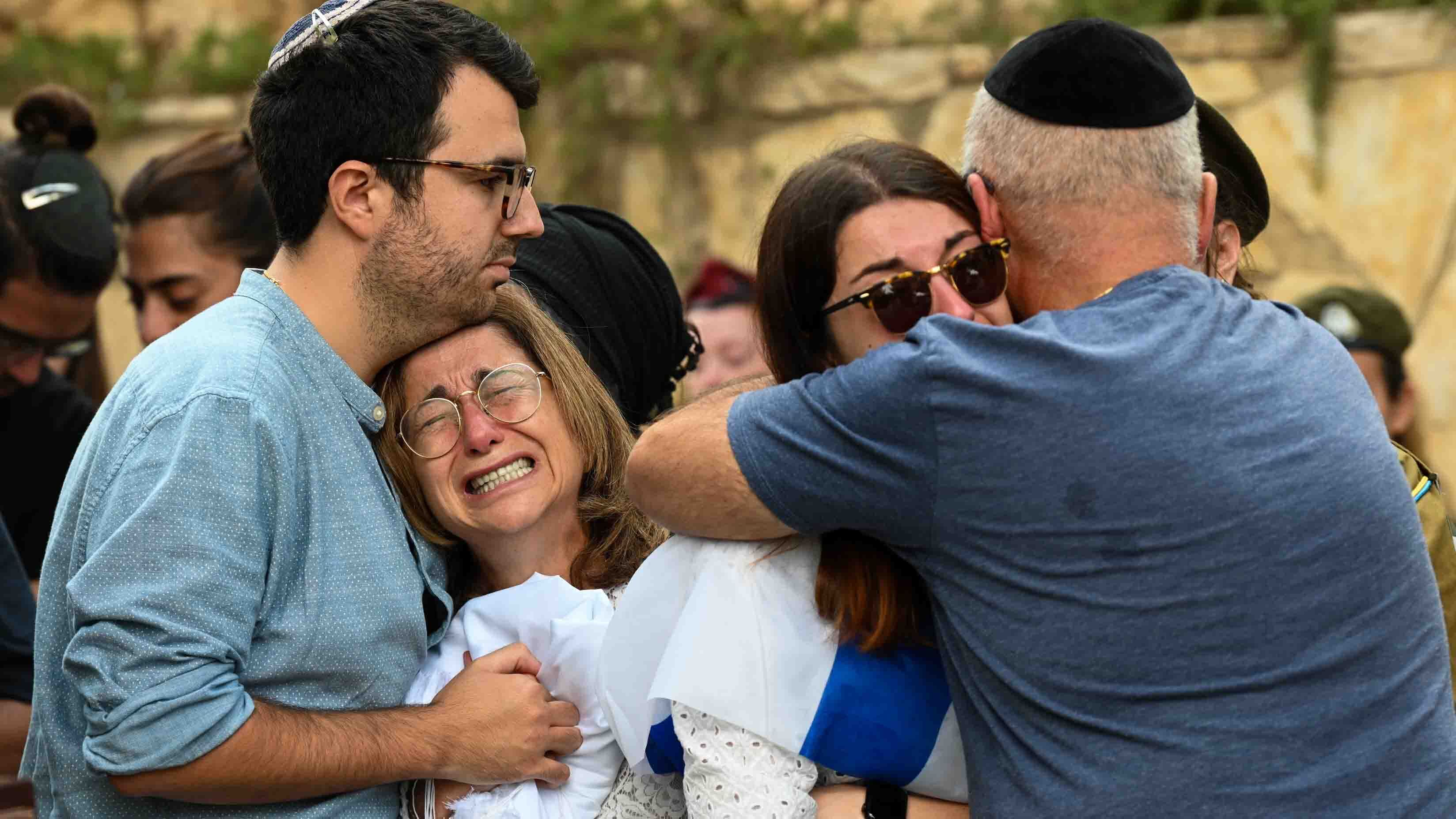Opinion: She's liberal. He's conservative. They'll help Americans co-exist after the election
They appeared like a bipartisan mirage on Tuesday afternoon — Dorsey Cartwright in her blue baseball cap, Roger Haynes in his red one, both wearing "American Hope" T-shirts in an appeal to voters of all stripes trickling out of the Austin Oaks Church voting site.
"We're just out here to represent that we can all work together no matter what happens," Cartwright told voters passing by the tree-shaded table for Braver Angels , a nonpartisan group that hosts online workshops and in-person events where people can learn how to have civil, constructive conversations with others across the political spectrum.
The message resonated with voters like Matthew Shepherd and Amanda Longtain.
"We're all part of the same tribe," Longtain told me, as Shepherd nodded. "We need to understand how to build bridges. It's the only way democracy is going to survive."
Voting may be the main event in our political landscape. But our duties in a democracy run year-round, in our willingness (or not) to hear other people's perspectives and our commitment (or not) to build consensus in how we tackle problems. The bridge-building work of Braver Angels will be as vital as ever in the aftermath of a presidential election that — any way you slice it — will leave half of the country deeply disappointed , if not bitter or infuriated.
"In some ways, I see the Democrats and the Republicans as an old, married couple," said Cartwright, a retired marriage and family therapist who now volunteers with Braver Angels. "And they've been through hell together, and they need therapy."
"And they still sleep back to back," Haynes added with a chuckle, continuing the analogy. "We've got to stop that. We've got to bring the love back."
These two friends disagree on plenty: Cartwright voted for Kamala Harris. Haynes cast his ballot for Donald Trump (though he was more interested in Robert F. Kennedy Jr. or Vivek Ramaswamy). But they both found their way four years ago to the Braver Angels of Central Texas, the local chapter of the national group that seeks to depolarize our narrowly divided country.
Haynes and Cartwright know how toxic our politics can be. Haynes, a retired Air Force chief master sergeant who now lives in Converse, admits he has had moments as a "keyboard warrior," firing off social media posts "without thinking, 'Is this going to pass the three gatekeepers?: Is it true? Is it kind? Is it necessary?'"
And Cartwright still vividly recalls feeling "dark, deep despair and a sense of doom" as she walked around her Austin home on the 2016 morning after Hillary Clinton conceded that presidential election to Trump.
"I sat on the couch in our living room, and I got really quiet, and I asked myself and the Powers That Be, 'What can I, one person, little Dorsey Cartwright, do to help my country and my fellow Americans?'" she recounted to me this week. "Because it wasn't just Trump himself, but all of the vitriol and all of the reactivity around both sides."
Both felt the pull to exit their echo chambers and try to understand where other people are coming from. And that is what Braver Angels is designed to do: Not host debates, but foster conversations online and at in-person workshops where each person leaves with a better understanding of others.
"In order to bridge that divide, we all have to do something," Haynes said. "It's not going to happen on its own. And the work really starts after the election."
As with many voters, Cartwright and Haynes hold more nuanced views than the opposing party gives them credit for. Cartwright, as a liberal, worries about government spending and bristles at the "war on women" rhetoric around abortion, noting that many who oppose abortion hold sincere views about the value of a vulnerable life.
Haynes, as a conservative, dislikes the ugly name-calling he sees from some prominent Republicans, and he strongly believes that people have the right to express their views, even in controversial ways. "It's OK if someone kneels during the national anthem," he said. "I served for that right."
Both recognize that politicians have an incentive to rile up outrage: People running for office want donations and votes. That means — fair or not — it falls to regular Americans to set the tone for our nation's political discourse, to signal what's welcome and what's unacceptable.
"I think we are to blame as citizens, for letting it get so out of control," Haynes said. "No matter who wins, there's still us that we have to take care of."
That project awaits all of us, whatever outcome this presidential election brings.
Grumet is the Statesman's Metro columnist. Her column, ATX in Context, contains her opinions. Share yours via email at or on X at Find her previous work at statesman.com/opinion/columns .
Join the discussionBraver Angels of Central Texas offers free events in person and online to help people learn how to talk constructively with those on other parts of the political spectrum. Visit braverangelscentraltexas.org .









